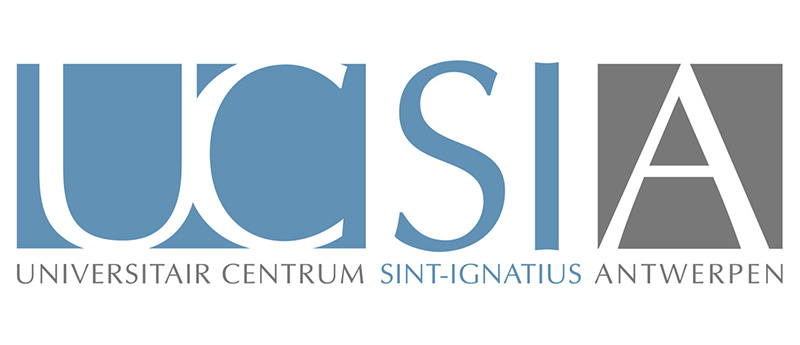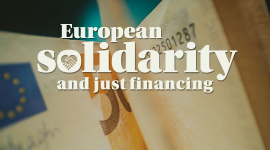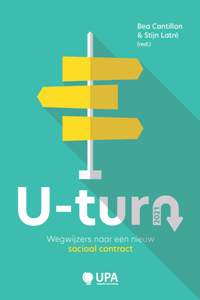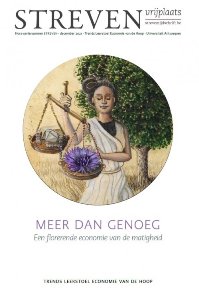Ethics & Economy
This thematic line connects economy with ethics. Humans are after all no ‘homo economicus’, isolated individuals who rationally pursue their own self-interests. We are social creatures with values and social norms. We respond to the appeal of others, resulting in altruism, sympathy, involvement and solidarity. We need recognition and coexistence. Greed and the will to profit are often less strong than our sense of justice. Economy and ethics, morality and values: it is not a story of connection, but of necessity. Economic logic must be embedded in the social and the ethical. Under the motto ‘a humane existence for all’ UCSIA regards economics as a moral science.
UCSIA connects ethics and economy within several themes. Throughout every one of these topics, we consider the disadvantaged groups in our society: people in poverty, migrants and so on. We give attention to public policy on the one hand and creative, valuable and sustainable entrepreneurship in the private sector through CSR (corporate social responsibility) and CSV (creating shared value) on the other hand.
- A first theme is social economy. The key question is: how can corporations and organizations contribute to a more inclusive and just society? There is too much exclusion in the economy: in comparison with other European countries, the current Flemish labour market is weak in terms of employment of low-skilled workers, elderly and people with a migration background. Social innovation and inclusion are key.
- A second theme revolves around climate, democracy and social justice. The central question is: how do we achieve the necessary climate transition in a socially just and democratic way? Not acting affects the most vulnerable populations on earth. Other solutions favour the rich at the expense of the poor. North-south relations are relevant here. We support the search for social, democratic and ecological measures.
- A third theme covers sustainability in the financial sector. The main question is: how can the financial sector ’serve’ society again? The ultimate goal of the sector is to create a sustainable, inclusive and social economy. Financial ethics and impact investments are key areas.
- A fourth theme is being facilitated by the chair P.W. Segers, a leading figure in the Christian workers movement after the war. The chair investigates challenges for work, income and family, now and in the future.
- A fifth theme relates to the chair Jef Van Gerwen, a Jesuit from Antwerp who was a pioneer in business ethics in Flanders. This chair is a forum for topics related to business ethics.
Projects
Jef Van Gerwen sj Chair
established in commemoration of Jef Van Gerwen, a Jesuit from Antwerp who pioneered the field of business ethics in Flanders and who co-founded UCSIA.
P.W. Segers Chair
on social policy in commemoration of Paul-Willem Segers, Belgian politician and leading figure in the christian labour movement.
Events
The Social Struggle of Climate Policy
lezing Chair P.W. Segers (in Dutch)
16 May 2024
all events
News
European Solidarity and Just Financing
call for papers for an international academic workshop in March 2023. Which place does solidarity have within the European Union? New and existing support mechanisms along with new financing instruments entail further steps in the creation of a ‘Social Europe’. It makes the question ever more pressing which place the EU actually holds in the domain of social policy. Extended submission deadline: 24 October 2022
Read more...
John Locke and liberalism
John Locke was a major philosopher in early Enlightenment. He is considered to be the father of liberalism. What was his take on the social contract? Political philosopher Alexander Rosenthal (Johns Hopkins University) puts John Locke in the context of the emerging liberalism.Watch the webinar...








